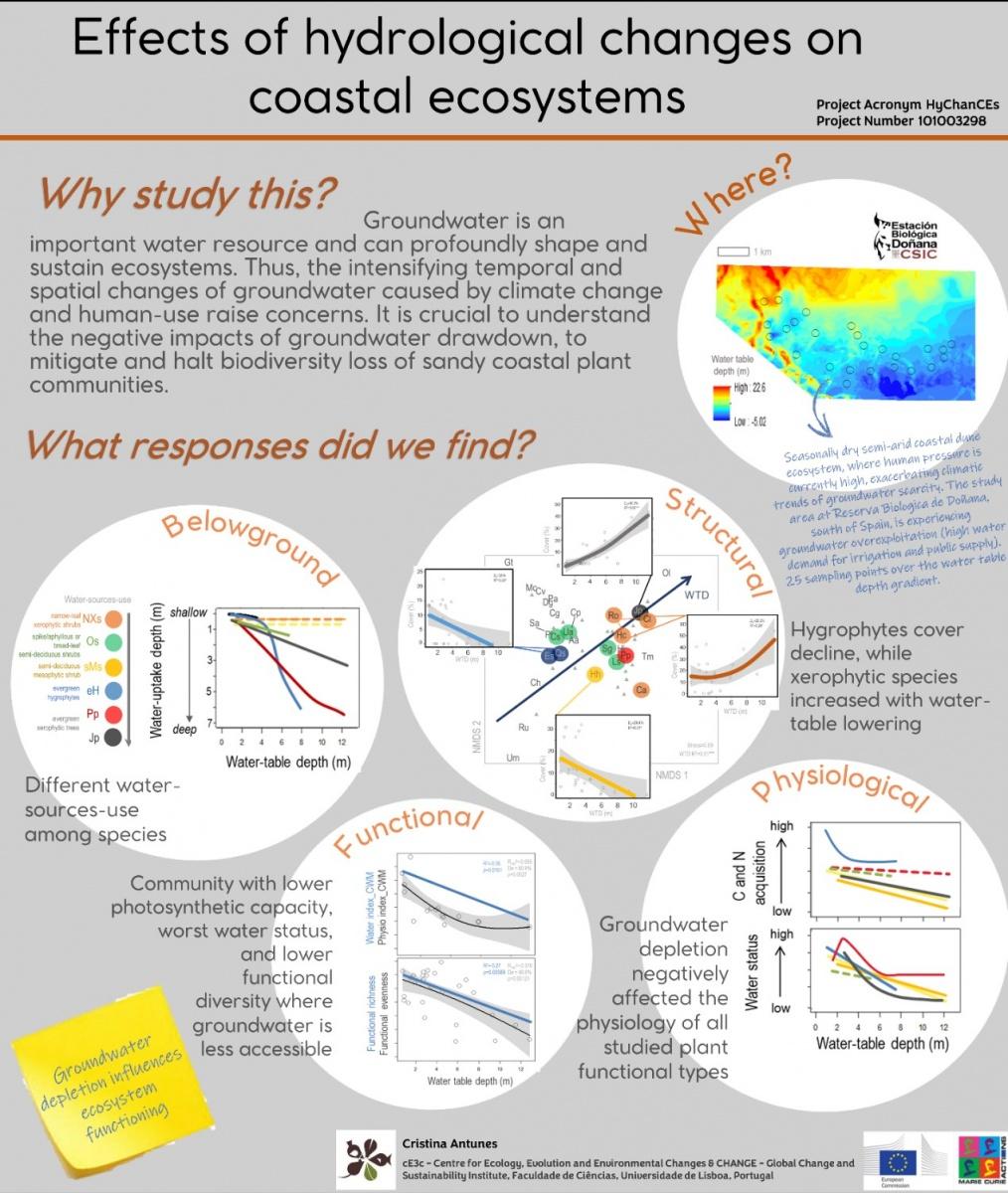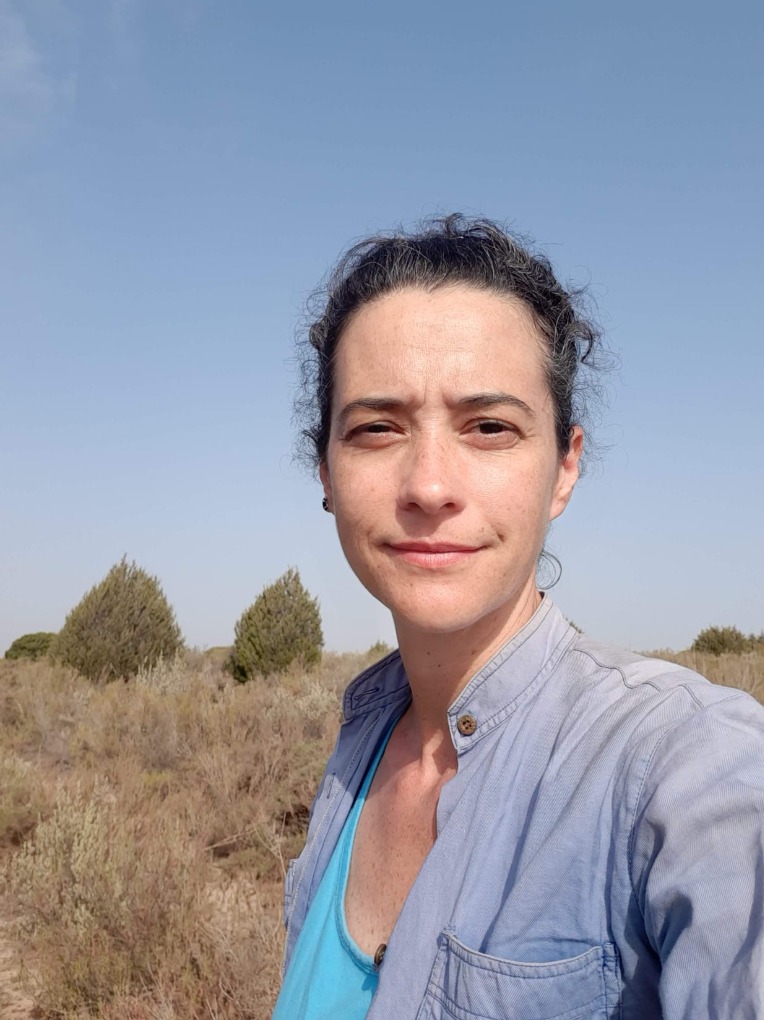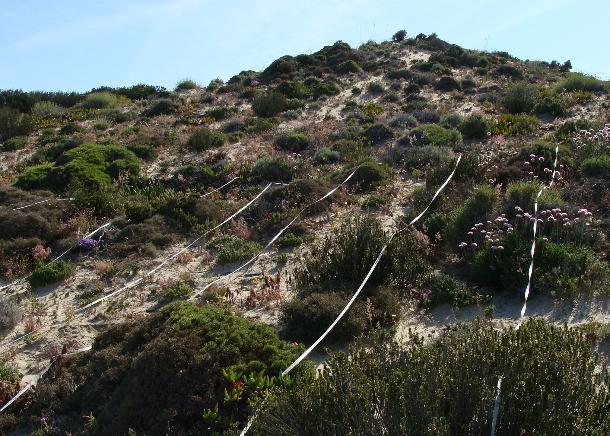
Summary:
Groundwater dynamics and water table level can greatly influence the physiological performance of plant species, composition of vegetation and ecosystem productivity. Understanding ecosystem sensitivity to hydrological changes such as groundwater decline, and the ecophysiological processes involved, are important challenges. This is particularly relevant in seasonally dry semi-arid coastal dune ecosystems of the Iberian Peninsula (such as Doñana area, south of Spain), where the human pressure is currently high, exacerbating climatic trends of groundwater scarcity.
Thus, this study aimed to evaluate the effects of hydrological drought, particularly water table lowering, on a semi-arid coastal dune ecosystem, and define their vulnerability to groundwater limitation, helping to mitigate the impact of water-resources’ changes on relevant coastal ecosystems.
The project was based on physiological measures, functional diversity, vegetation structure, remote sensing, water-table depth modeling, up-scaling processes, and assessment of integrated vegetation responses to groundwater changes. Community-level assessments, integrated trait syndromes and functional approaches may better point out the vulnerability of vegetation (and habitats/ecosystem) to the reduction of groundwater resources.
With this work it was found great functional impacts of groundwater depletion on the sandy woody community of Doñana Biological Reserve. There is a decrease in functional richness and evenness with groundwater lowering. Combining community structure with (multi-trait) physiological approaches is important to better trace the vulnerability of the vegetation to the decline in water table. The basis for creating a suitable indicator of groundwater lowering impacts was achieved. HyChanCEs allowed us to understand how groundwater depletion is affecting the functional diversity of important coastal dune woody communities. Importantly, dominant traits on shallow groundwater sites pointed to a community with a higher photosynthetic capacity and better water status. A decrease in functional richness and functional evenness with groundwater lowering reinforced the functional impacts at ecosystem level.
The outputs of the project intend to have great implications for water management plans, by signaling vulnerable and endangered coastal areas to current and future groundwater changes. Ultimately, in the long-term, it will contribute to better outline sustainable management strategies conciliating habitat conservation and water-resources use, in semi-arid coastal dune ecosystems of the Iberian Peninsula.
Funding Institution:
This project has received funding from the European Union’s Horizon 2020 research and innovation programme under the Marie Skłodowska-Curie grant agreement No 101003298.
Partners:
cE3c - PI;
Host institution: FCIências.ID;
Partners:
Department of Biogeography and Global Change of the Natural History Museum in Madrid (MNCN - CSIC);
Doñana’s Biological Reserve (RBD, Spain);
University of Seville (Spain).


